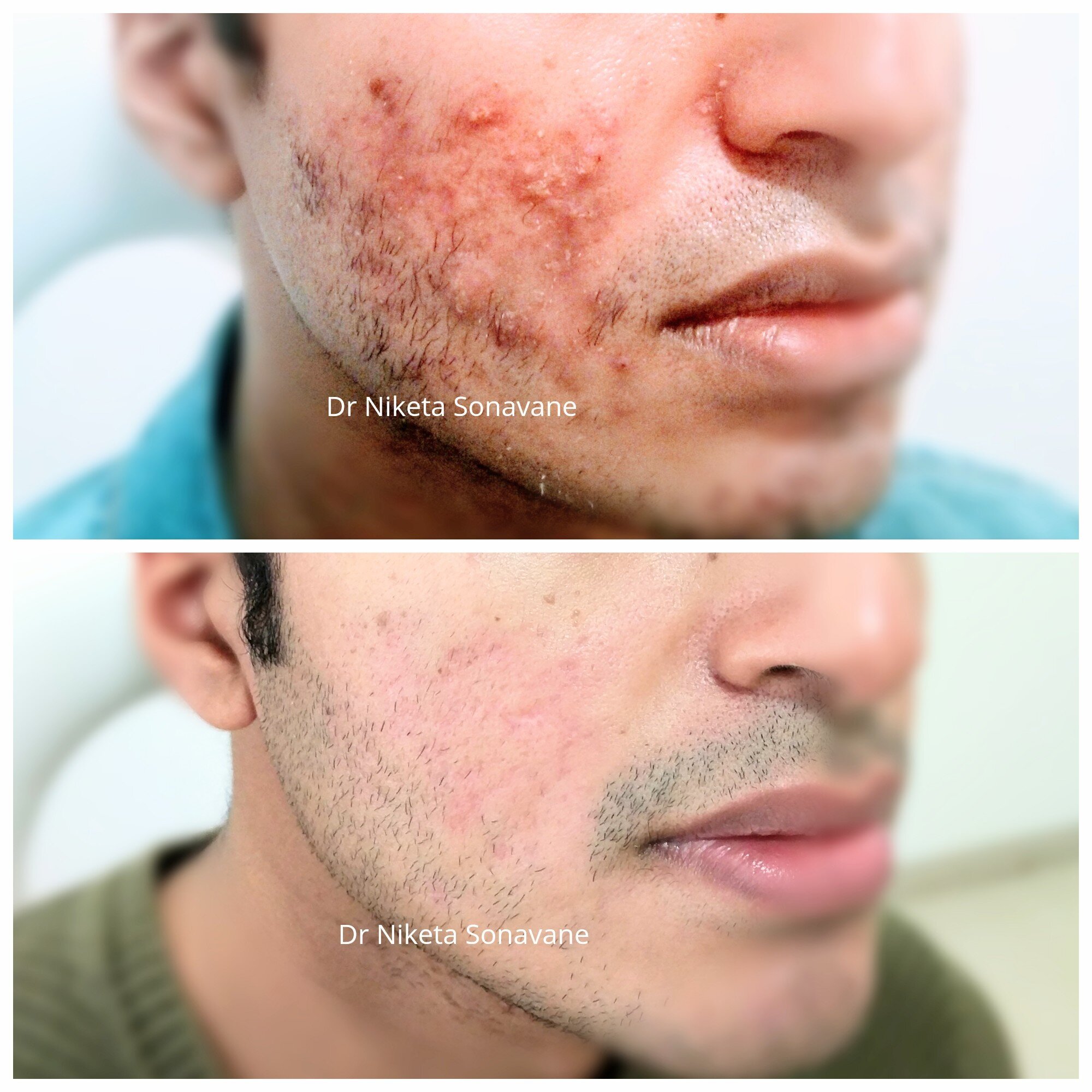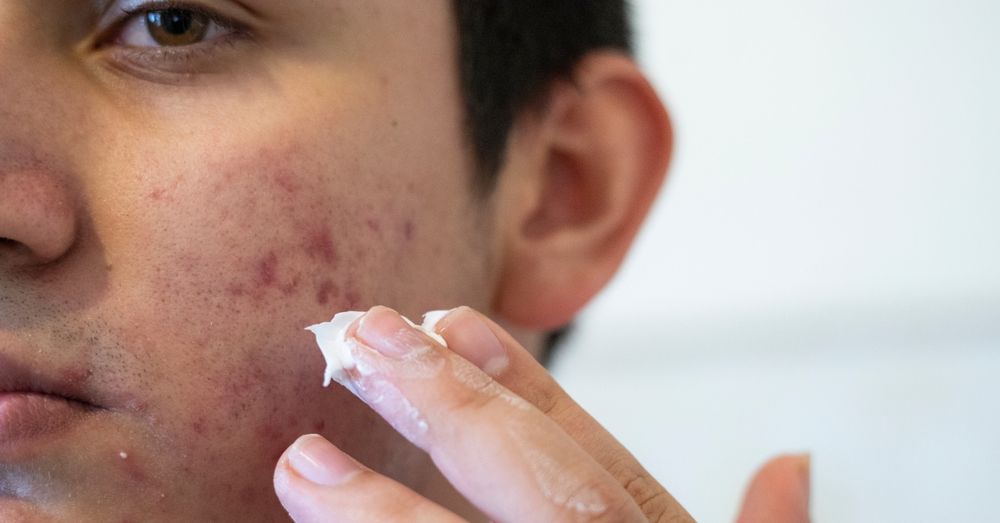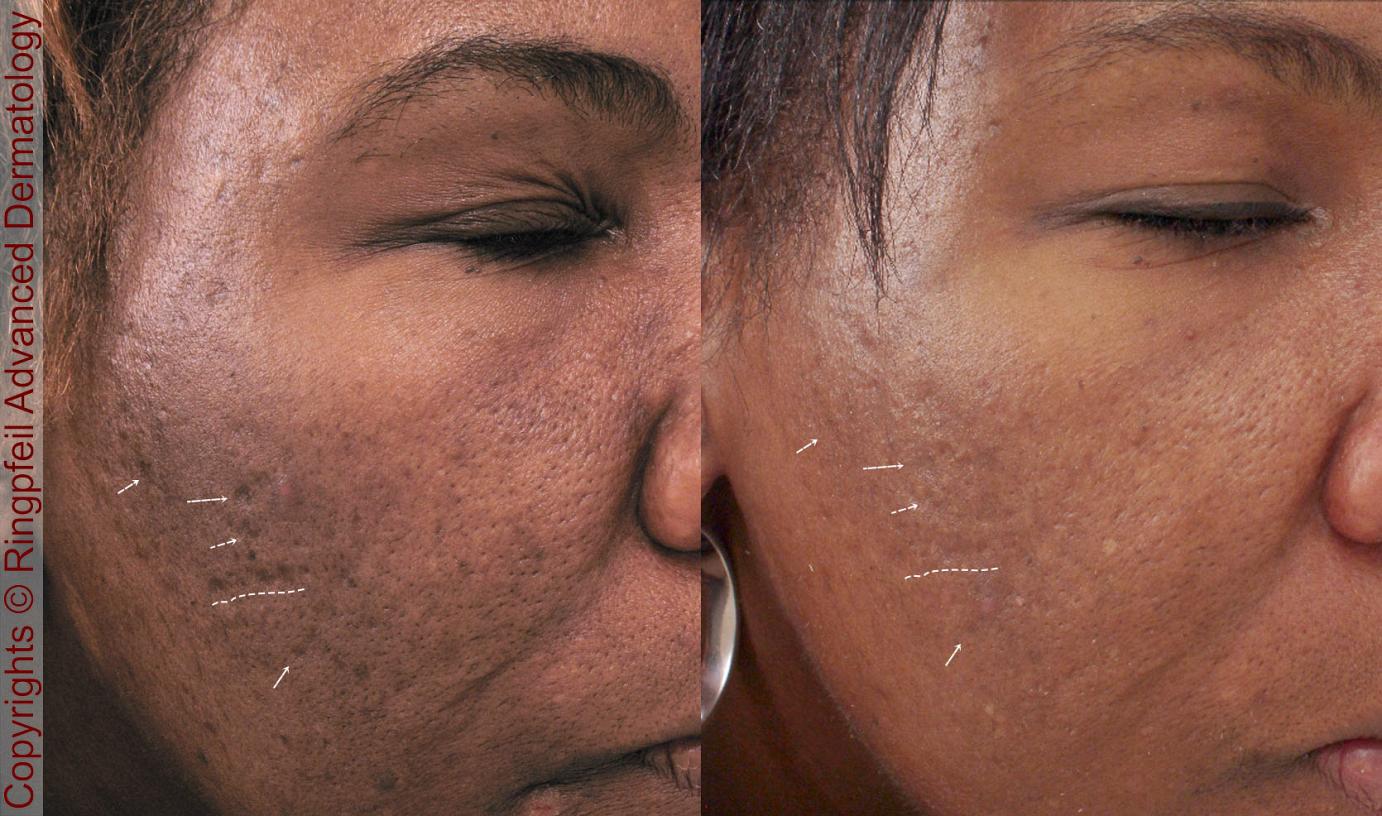Skin Rejuvenation Treatments: Rejuvenate Your Skin and Decrease Acne Scars
Skin Rejuvenation Treatments: Rejuvenate Your Skin and Decrease Acne Scars
Blog Article
Recognizing the Numerous Skin Problem and Effective Treatment Alternatives for Acne Scars
Acne marks stand for an intricate interaction of skin problems that substantially impact people' self-confidence and overall skin health. As we explore the landscape of acne mark management, it becomes evident that the journey towards more clear skin might entail even more than just topical options.
Types of Acne Scars

In comparison, hypertrophic marks result from an overflow of collagen during the recovery process, bring about increased locations on the skin. These marks are commonly firm and can vary in shade, sometimes appearing red or darker than the bordering skin.
Understanding these types of acne marks is essential for establishing a reliable treatment strategy - skin rejuvenation treatments. Options might consist of chemical peels, laser treatment, microneedling, or dermal fillers, customized to the details scar kind. A thorough appointment with a skin doctor can aid identify the most suitable treatment, considering the person's skin type, scar seriousness, and general skin health and wellness
Reasons of Acne Scarring
Marking takes place as an outcome of the body's all-natural recovery response to inflammation and injury caused by acne lesions. When acne forms, it causes an inflammatory response, resulting in the release of different cytokines and growth elements that promote healing. This process can sometimes lead to too much cells development or insufficient repair work, resulting in marks.
The main root causes of acne scarring include the severity of the acne itself, duration of the sores, and private skin types. Serious inflammatory acne, such as cysts and blemishes, is most likely to lead to scarring because of deeper cells damage. Additionally, inappropriate handling of acne lesions, such as selecting or pressing, can exacerbate cells injury and inflammation, enhancing the likelihood of scarring.
Genetic tendency also plays a significant duty; people with a family background of scarring are at a higher threat. Furthermore, skin type and color can affect scar development, as darker skin tones may experience post-inflammatory hyperpigmentation, while lighter skin might establish atrophic scars.
Eventually, understanding these reasons is necessary in handling acne and mitigating the possibility for scarring.

Treatment Choices for Scarring
Reliable therapy choices for acne scarring vary relying on the kind and seriousness of the scars. Usually classified into atrophic, hypertrophic, and keloid marks, these problems require customized methods for optimal outcomes.
For atrophic scars, which are identified by a loss of tissue, treatments such as chemical peels, microdermabrasion, and laser treatment are typically used. These techniques promote skin revival and stimulate collagen manufacturing, thus improving skin structure. Subcision, a minimally invasive procedure, can also be effective by damaging up coarse bands below the skin.
Keloid and hypertrophic scars can be more testing to deal with. Choices consist of corticosteroid injections to lower inflammation and squash the scars. In many cases, cryotherapy or laser treatment may be advised to reduce their look.
Surgical options are offered for severe scarring, where excision or skin grafting may be essential. It's vital for people to talk to a skin doctor to assess their certain mark type and review the most ideal therapy plan. Integrating multiple therapies frequently produces the finest outcomes, making certain that each patient's special skin condition is dealt with properly.
Natural Remedy and Natural Solutions
Natural options and natural remedy can provide an easily accessible strategy for individuals looking for to improve the appearance of acne scars (acne and acne scars treatment). Different ingredients located in the home kitchen have shown potential benefits in enhancing skin texture and promoting recovery

One more effective alternative is lemon juice, which functions as a natural exfoliant and can lighten hyperpigmentation. It ought to be used cautiously, as it might create photosensitivity. Oat meal masks are also helpful; their mild peeling can aid get rid of dead skin cells while soothing inflammation.
Vital oils, such as tea tree oil and lavender oil, can better sustain mark recovery because of their antimicrobial homes. It is critical to execute a spot test before using any treatment to make certain there are no unfavorable responses. These all-natural solutions can be a corresponding strategy in the journey to decrease acne scars.
Preventing Future Scarring
Embracing an aggressive approach to skincare can dramatically reduce the danger of establishing future acne marks. Among the key techniques is to handle acne efficiently as it arises. This involves utilizing non-comedogenic skincare items and medicines suggested by skin doctors that target acne without irritating the skin. Regular cleansing, exfoliation, and hydration can help maintain skin health and wellness and stop stopped up pores.
Furthermore, preventing the temptation to choose or squeeze acne sores is crucial, as this can lead to swelling and succeeding scarring. Instead, individuals should concentrate on using topical therapies that promote healing and reduce swelling. Active ingredients such as salicylic acid, benzoyl peroxide, and retinoids are understood for their effectiveness in handling acne and decreasing scars.
Sun protection is More hints an additional essential part; exposure to UV rays can dim scars and restrain recovery. Consequently, making site web use of a broad-spectrum sun block daily can reduce these effects - acne scars.
Finally, maintaining a healthy and balanced diet plan abundant in antioxidants and staying moisturized supports skin regrowth. By executing these safety nets, individuals can substantially reduce their risk of future scarring and promote total skin health and wellness.
Conclusion
In final thought, a thorough understanding of acne scars, encompassing both atrophic and hypertrophic kinds, is essential for effective treatment approaches. Assessment with a skin doctor stays crucial to develop customized techniques that take into consideration specific skin kinds and mark extent, inevitably boosting the efficiency of mark monitoring methods.
Acne marks represent a complicated interplay of skin conditions that significantly impact people' self-worth and total skin wellness. The 2 main classifications of acne scars are atrophic and hypertrophic marks. These marks are additional categorized into 3 subtypes: ice choice scars, which are narrow and deep; boxcar scars, which are bigger and have distinct edges; and rolling scars, which create a wave-like look due to unequal skin texture.
An extensive assessment here are the findings with a dermatologist can aid establish the most proper intervention, taking right into account the person's skin type, mark intensity, and overall skin health.
Appointment with a skin specialist remains essential to devise individualized methods that consider private skin types and mark seriousness, inevitably improving the efficacy of mark management methods.
Report this page